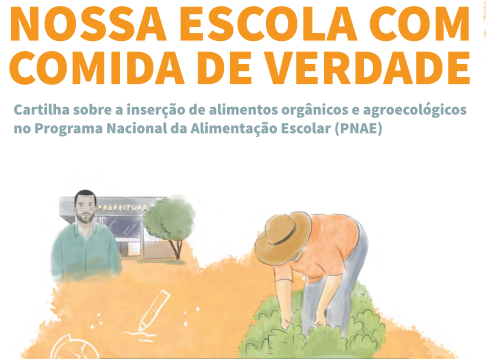In agrifood systems, not everyone’s experience is equal
FAO | Abril 2023
If we tackle the gender inequalities endemic in agrifood systems and empower women, the world will take a leap forward in addressing the goals of ending poverty and creating a world free from hunger. This report shows how the creation of work in agrifood systems for women, especially rural women, enhances their well-being and provides opportunities for economic growth, incomes, productivity and resilience. For the first time in more than a decade, FAO is providing a comprehensive picture of the status of women working not only in agriculture, but across agrifood systems. The report contains extensive new data and analyses about the challenges women face, particularly in rural areas, and provides actionable and policy-oriented evidence about what has succeeded in improving equality.
Women’s empowerment and gender equality are not only a key part of achieving the Sustainable Development Goals (SDGs) by 2030, but are also intrinsically important for women’s and men’s well-being. SDG 5 calls on us to achieve gender equality and empowerment for all women and girls by 2030 – a deadline that is fast approaching. This report shows that, despite the increasing attention placed on gender since the Fourth World Conference on Women, held in Beijing in 1995, there are still large gaps in achieving gender equality in agrifood systems.
While women have gained more access to some resources – such as digital technology and financial services – over the past decade, the gaps are either unchanged or growing in far too many areas, particularly for rural women. For example, since the outbreak of the COVID-19 pandemic, the gap between women’s and men’s food insecurity has grown to 4.3 percentage points, with significantly higher food insecurity among rural women. Rural women are less likely than rural men to own a mobile phone. Improvements in reporting on women’s landownership and tenure demonstrate just how far we are from gender equality, with a significantly larger share of men in agricultural households compared with women owning land in 40 out of the 46 countries reporting on SDG Indicator 5.a.1. Closing these gaps and others, such as the gaps in agricultural productivity and agricultural wages, where women earn 82 cents for every dollar earned by men, would greatly improve food security, nutrition and increase economic growth.
The changes required to meet SDG 5 are far-reaching. Nevertheless, they are possible given positive progress made in the capacity of governments, international institutions, civil society and other stakeholders to plan and invest more intentionally in both gender equality and women’s empowerment. This report shows that comprehensive investment in women’s empowerment can be transformative, even with the same level of public resources. Ensuring that policies and projects have a more explicit focus on empowerment, including better access for women to resources and assets and enhancing their decision-making power, will help increase incomes and resilience for women, their households and communities – particularly in rural areas.
Gender equality and women’s empowerment is embedded in the FAO Strategic Framework 2022–2031, and is mainstreamed in our efforts to achieve the four betters: better production, better nutrition, a better environment and a better life for all, leaving no one behind. With the publication of this report, FAO makes a commitment to do even more to deepen our focus on gender equality and women’s empowerment, with particular attention to rural and small scale women producers. This includes advocating for policy frameworks that seek to address social norms and structural constraints, and utilizing gender-transformative approaches to a greater extent in our projects and programming for inclusive rural development.
Efficient, inclusive, resilient and sustainable agrifood systems depend on the empowerment of all women and gender equality. Women have always worked in agrifood systems. It is time that we made agrifood systems work for women. We encourage all stakeholders to make a commitment to join us in increasing equality.
QU Dongyu
FAO Director-General
Read/Download the full Status of Women in Agrifood Systems report
Spot site
https://www.fao.org/interactive/women-in-agrifood-systems/en/



